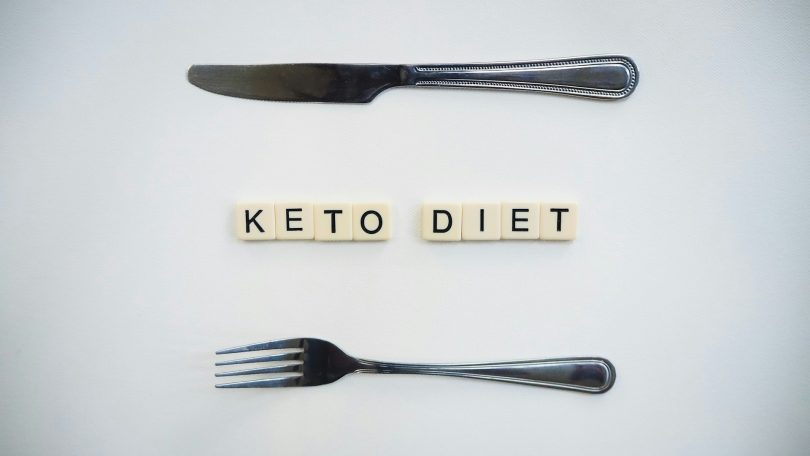A Therapeutic Approach to Wellness
In recent years, the ketogenic diet has surged in popularity, not just as a weight loss strategy, but as a potential therapeutic tool for various health conditions. As the founder of Natural Ketosis, I’ve witnessed firsthand the transformative power of this high-fat, moderate-protein, and low-carbohydrate approach.

Let’s delve deeper into what the ketogenic diet entails, how to achieve ketosis, and its promising therapeutic applications.
Understanding the Ketogenic Diet
The ketogenic diet, often abbreviated as “keto,” is a nutritional approach that fundamentally alters the way our body uses energy. Traditionally, our bodies rely on glucose derived from carbohydrates as the primary fuel source. However, when we drastically reduce carbohydrate intake and increase fat consumption, our body enters a metabolic state called ketosis.
In ketosis, the liver begins to break down fatty acids into ketone bodies, or ketones, which serve as an alternative energy source for the brain and body. This shift from glucose to ketones as the primary fuel can lead to numerous physiological changes, many of which are associated with improved health outcomes.
The Biochemistry of Ketosis
To truly appreciate the ketogenic diet, it’s crucial to understand the biochemical processes involved. When carbohydrate intake is severely restricted (typically to less than 50 grams per day), the body’s glycogen stores become depleted. As a result, insulin levels drop, and the body starts to mobilise stored fat for energy.
The liver then converts fatty acids into ketones through a process called ketogenesis. The three main types of ketones produced are:
- Acetoacetate
- Beta-hydroxybutyrate (BHB)
- Acetone
These ketones can cross the blood-brain barrier, providing an efficient energy source for the brain. This is particularly significant because while most body tissues can use fatty acids directly for energy, the brain typically relies on glucose. The ability of the brain to use ketones for fuel is a key factor in many of the diet’s therapeutic applications.

Therapeutic Applications of the Ketogenic Diet
The ketogenic diet’s potential extends far beyond weight loss. Research has shown promising results in various health conditions:
- Epilepsy: The diet has been used since the 1920s to help control seizures, particularly in children with drug-resistant epilepsy. It’s thought that ketones may have an anti-epileptic effect, possibly by altering neurotransmitter levels or enhancing mitochondrial function.
- Type 2 Diabetes: By significantly reducing carbohydrate intake, the ketogenic diet can help improve insulin sensitivity and blood sugar control. Some studies have shown that it may even lead to remission of type 2 diabetes in some individuals.
- Neurological disorders: Emerging research suggests potential benefits for conditions like Alzheimer’s disease, Parkinson’s disease, and multiple sclerosis. The neuroprotective effects of ketones and the diet’s anti-inflammatory properties may play a role in these potential benefits.
- Polycystic Ovary Syndrome (PCOS): The diet may help reduce insulin levels and improve insulin sensitivity, potentially leading to better hormone balance and improved fertility in women with PCOS.
- Cardiovascular health: Despite its high-fat nature, well-formulated ketogenic diets have been associated with improvements in several cardiovascular risk factors. These include reductions in triglycerides, increases in HDL cholesterol, and improvements in the size and quality of LDL particles.
- Mental health: Some research suggests that the ketogenic diet may have mood-stabilising effects and could potentially benefit conditions like bipolar disorder and schizophrenia. The mechanisms are not fully understood but may involve the diet’s effects on neurotransmitters and brain energy metabolism.
Considerations & Precautions
While the therapeutic potential of the ketogenic diet is exciting, it’s crucial to approach this dietary change with caution and under professional guidance. The diet may not be suitable for everyone, particularly:
- Pregnant or breastfeeding women
- People with kidney disease or pancreatitis
- Individuals with certain genetic disorders affecting fat metabolism
The ketogenic diet offers a unique approach to wellness that goes beyond simple weight loss. By fundamentally altering our body’s fuel source, it has the potential to address a wide range of health conditions. At Natural Ketosis, we believe in the power of nutritional ketosis to transform health.

As research in this field continues to evolve, we’re likely to gain even more insights into the therapeutic applications of the ketogenic diet. By understanding its mechanisms and potential benefits, we can harness the power of nutrition to support overall health and well-being in ways we’re only beginning to fully appreciate.
Main – Photo by Total Shape on Unsplash



